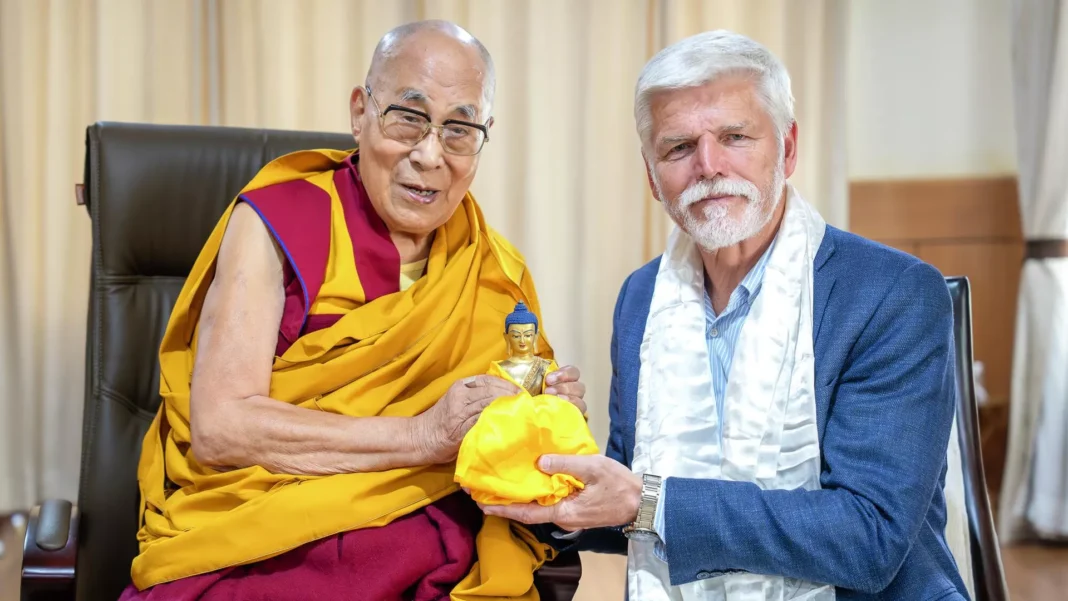China has announced it will suspend all official engagement with Czech President Petr Pavel following his recent meeting with the 14th Dalai Lama in India. The decision, confirmed by Chinese Foreign Ministry spokesperson Lin Jian, was described as a direct response to what Beijing called “blatantly provocative actions” that undermine China’s sovereignty and territorial integrity.
According to the ministry, the move targets Pavel personally, while relations with the Czech government as a whole remain in place. Chinese officials stressed that the Czech leader ignored repeated warnings and formal protests urging him not to go ahead with the meeting.
President Pavel met the Dalai Lama on July 27, 2025, during a private visit to India to mark the Tibetan spiritual leader’s 90th birthday. The encounter drew swift criticism from Beijing, which has long viewed the Dalai Lama as a separatist responsible for unrest in Tibet, including protests in the 1980s and 2008.
The Dalai Lama has lived in exile in India since 1959. He is expected to decide this year whether to identify a successor, with some hints that the next Dalai Lama could be born outside China — a scenario Beijing has vowed not to recognize. Chinese authorities insist that the right to appoint senior Tibetan Buddhist leaders lies exclusively with the central government in Beijing.
Pavel’s meeting continues a tradition in Czech politics of symbolic support for the Tibetan cause, a stance championed by former president Václav Havel. Analysts warn that this latest diplomatic rift could deepen existing tensions between China and the European Union over human rights, trade, and geopolitical alignment.
What “No Contact with the President” Means in Practice
Scope of the freeze: The suspension applies specifically to Petr Pavel in his capacity as Czech president. Chinese ministries and embassies will not respond to his official correspondence, invite him to state events, or receive him on visits.
Government-to-government channels remain open: Beijing has not formally downgraded relations with the Czech Republic. Diplomatic, trade, and cultural contacts can still proceed through other Czech officials.
Symbolic but pointed: This measure signals strong disapproval without completely severing bilateral ties, allowing China to apply political pressure without harming core economic relations.
Likely Czech Response
Defending principle over pressure: Prague is expected to reaffirm its commitment to freedom of engagement, citing Czech democratic values and past precedent for meeting Tibetan leaders.
EU backing possible: The European Union has previously supported member states facing political backlash from China over Tibet or Taiwan. Brussels may issue a statement of solidarity.
Limited immediate economic risk: While Chinese sanctions on trade are unlikely in the short term, Prague may face obstacles in ongoing negotiations over investment and market access.


